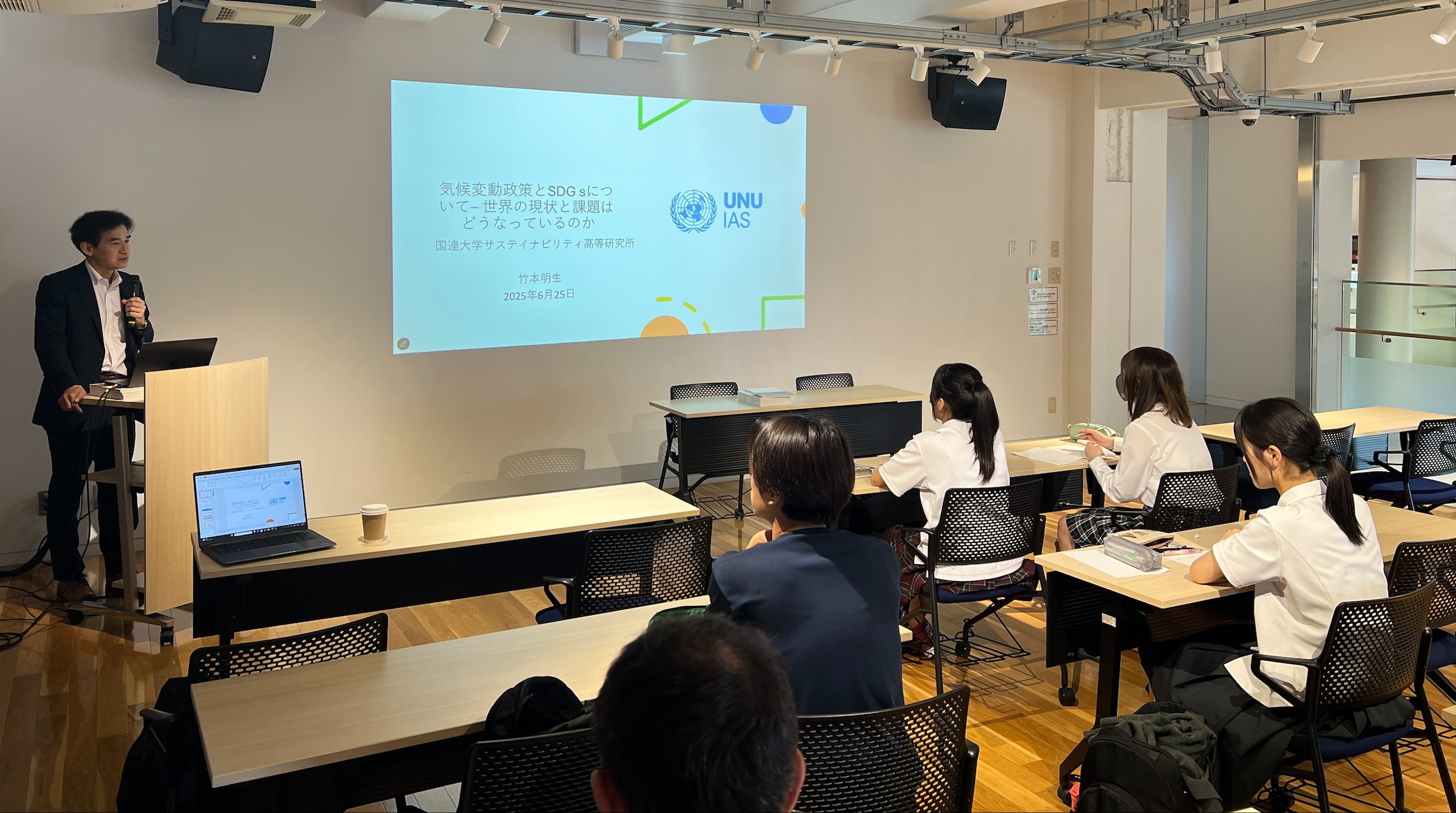Learning the Global and Local Dimensions of SDGs, Climate Change, and Biodiversity
On June 25, 2025, the first lecture session of the “Leadership Development Program for the Next Generation: Changing the World from Kanazawa, Ishikawa” (Youth Empowerment Program) was held at the Kanazawa Mirai no Machi Creation Center. Fifteen high school students selected from within Ishikawa Prefecture joined the session to explore global challenges such as SDGs, climate change, and biodiversity through both international and local lenses.
In the first half of the lecture, Dr. Akio Takemoto (Head of Programme and Administration, UNU-IAS), delivered a talk titled “Climate Change Policy and SDGs: What Are the Current Global Status and Challenges?” Dr. Takemoto outlined the Paris Agreement and the SDGs frameworks. He also explained how international treaties shape domestic policies, discussed the risks associated with renewable energy, and addressed challenges in Japan’s energy and food self-sufficiency. Throughout his lecture, Dr. Takemoto emphasized the importance of youth participation in building a sustainable future in an aging society.
In the second half, Dr. Juan Pastor-Ivars (Researcher, UNU-IAS OUIK) gave a lecture in English titled “Addressing the Biodiversity-Climate Nexus through Nature-based Solutions — Kanazawa Model.” Starting from the close connection between climate change and biodiversity (the biodiversity-climate nexus), he presented practical examples of nature-positive urban development in Kanazawa. These included initiatives utilizing natural resources such as traditional gardens and shrine forests as green infrastructure, repurposing vacant land, and collaborating with local residents to conserve the environment. The lecture introduced approaches to applying international concepts like Nature-based Solutions, Just Urban Transition, and Climate Justice to local initiatives.
One of the most thought-provoking moments for the participants came with the question: “What does justice mean?” The students came to understand that climate change is not only about the environment—it is also a social issue, connected to population changes, gender equality, poverty, and international politics.
The next lecture is scheduled for July 9, where participants will explore regional issues and resilience using case studies of the Noto Peninsula earthquakes and heavy rain disasters





